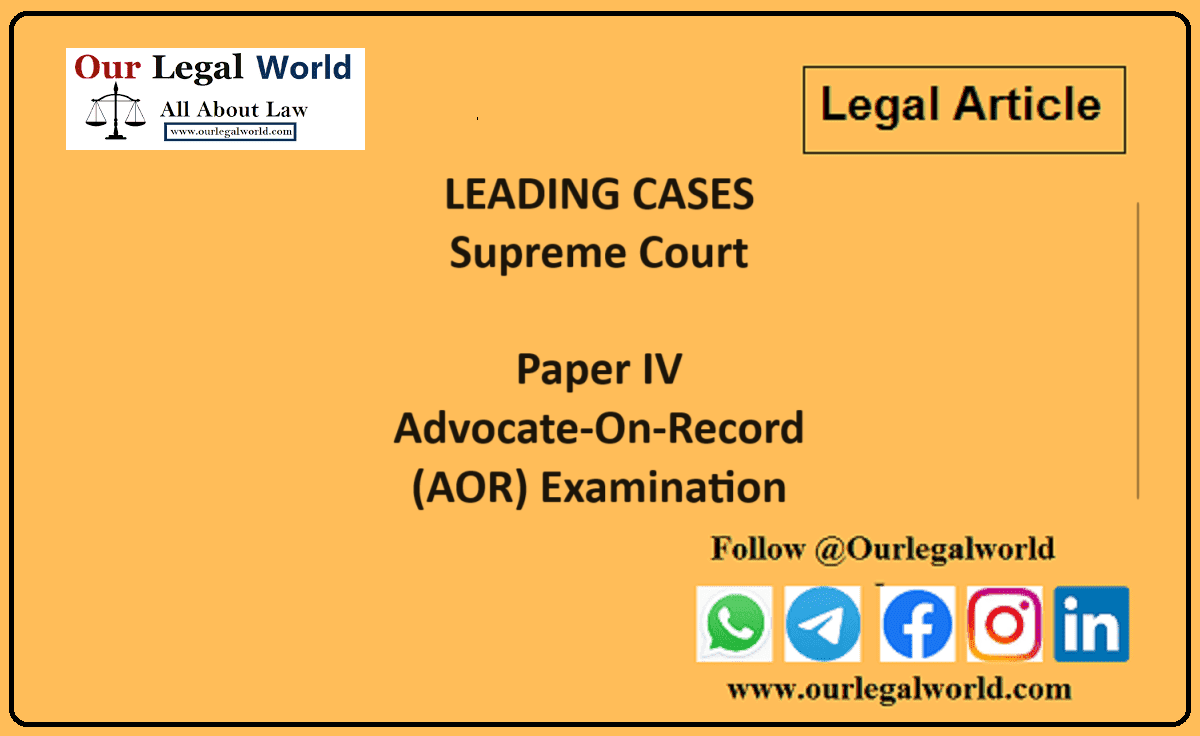IGNORANTIA JURIS NON EXCUSAT : LEGAL MAXIM
Ignorance of the law is no excuse
We can put the meaning of word ‘the law’, as the regime that orders human activities and relations through systematic application of the force of politically organised society or through social pressure in such a society. In the legal system all persons are expected to respect and obey the law.
With some exceptions almost all our conducts are regulated by law. We have various types of law like civil, criminal, personal, family, revenue, public and private international law and so on. But it is well known that ignorance of any of these laws cannot make up an alibi.
This principle is explained by the legal maxim ignorantia juris non excusat.
Meaning of the maxim
The Latin maxim means, that the lack of knowledge about a legal requirement or prohibition is never an excuse to a criminal charge.[i] The idea is commonly rendered as ignorance of the law is no excuse, in English. And frequently reduced as ignorantia juris.
The maxim also dubbed as ‘ignorantia legis non excusat’ or ‘ignorantia juris haud excusat’, also as ‘ignorantia juris neminem excusat’, which means ‘ignorance of the law excuses no one’.
According to Glanville Williams, the maxim was originally phrased at a time when the list of ‘crimes’, broadly speaking, represented current morality, mala in se, which now governs many other crimes that are the result of administrative or social regulation, mala prohibita. It hints us the rule that ignorance of fact can become an excuse, to the extent that it negatives mens rea or the guilty mind, ignorance of the law generally does not.[ii]
Rationale behind the maxim
The principle behind the meaning of maxim is based on the presumption that everybody is, rather duty bound, knows the law. Ignorance of these, bound to know, things therefore, does not excuse anyone. Scholars put it as merely a legal fiction, which has been created out of necessity for the sake of convenience. Therefore, a mistake of law, without considering the rationale behind it, even in good faith, does not operate as a factor for the acquittal.
The principle behind the maxim has been justified by scholars on following three grounds:[iii]
Theoretically ‘Law’, is defined and knowable. Hence innocent and unavoidable ignorance is almost impossible.
If the maxim is relaxed, then every accused may take the plea that there was no knowledge of the law on his/her part. Hence it will become almost impossible for the prosecution to prove the same. Hence out of the necessity, it is not advisable to dismantle the tool, which is necessary for the administration of the justice effectively.
Criminal law relies on certain moral principles and hence when anyone breaks the law though he knows very well that he is breaking the rule of right, even though he is ignorant of any of the provisions of law.
Obviously this presumption is not based on ground realities. In fact, the large volume of statutory law makes it impossible for even learned lawyers to be so familiar with all the provisions.
However, the ‘legal fiction’ is justified, ignorantia juris non excusat, in the public interest. Allowing mistake of law may also lead towards the encouragement of ignorance of the law.
Statutory provisions
The Indian Penal Code, 1860
A plain reading of sections 76 and 79 in the Indian Penal Code, 1860, with special attention to the words ‘who by reason of a mistake of fact and not by reason of a mistake of law in good faith believes’ appearing therein, shows us that the protection of the sections applies only to mistake of fact and not to mistake of law. This is based on the Common Law maxim ignorantia facti doth excusat, ignorantia juris non excusat ignorance of fact excuses but ignorance of law does not.[iv]
Illustration
A, a foreigner, kills B in a duel in India. He believes dueling to be lawful in India. ‘A’ is guilty of murder. The act committed by ‘A’, was a certain act which for the first time made an offence by statute. ‘A’ proves that at the time the statute was passed, he was at sea and could not possibly have known of it. This defence is not allowed.
Mistake of law, as perceived in India
Mohammad Ali v Sri Ram Swarup[v]
Facts: Ram Swarup was the Head Constable while the remaining three respondents were constables posted at the Police Station Kairana, district Muzaffarnagar. The complainant was a Homeopath practising at Kairana. The respondents unlawfully put the complainant under arrest.
Held: Mistake of law, even in good faith, is not a defence. It, nevertheless, may operate as mitigating factor. And arrest of person without warrant not justified.
Emperor v Nanak Chand[vi]
It was held, however, if the law provides that certain knowledge of law on the part of the accused is an essential ingredient of the offence, in good faith, mistake of law, may be a good defence to a charge of a criminal offence.
Critiques of the maxim
Shamsul Huda, argued that, as both negatives the existence of guilty mind, the ignorance of fact and ignorance of law equally be an excuse for.[vii]
Justice Maule, doubting the maxim, stated, there is no presumption that every person knows the law; if it were so it would be contrary to common sense and reason… There would be no need of courts of appeal if there were not such thing as a doubtful point of law, the existence of which shows that judges may be ignorant of law.[viii]
Glanville Williams observed, ‘The view that everyone is presumed to know law is not a true proposition of law, and even if it were, it would only be a legal fiction not a moral justification’.[ix]
In India a majority of the population is illiterate and hence this presumption of knowledge of law seems not only to be illogical but also ridiculous and unjust. Legal knowledge is very poor even among the educated and literate. Even the professionals- lawyers, judges, and law teachers, do neither claim nor in fact know all the laws.
Also Read: Latin maxims and terms associated with the IPC (Indian Penal Code)
Recalling implications of the rigorous application of the principle of mistake of law is no excuse and the relaxations made in other jurisdictions, Justice RL Narasimham,[x] suggested that the mistake should be a defence, where the mistake of law relates to a provision of a rule, byelaw, order or notification made under an Act of the Legislature, and the accused person’s mistake is of such a nature that he could not have avoided it by due diligence then.
Conclusion
The doctrine warns the people who break the law will be punished, regardless of whether or not they are aware of the law prohibiting or allowing their activity, which may be regarded as a crime. However the principle behind the doctrine is not that everyone should know each provision of law. But it is for the larger public good, which allows the effective administration of the justice.
References
[i] Black’s Law Dictionary (11th ed. 2019)
[ii] Glanville Williams, Textbook of Criminal Law 405 (1978).
[iii] R. L. Narasimham, Journal of the Indian Law Institute, Vol. 13, No. 1 (1971)
[iv] PSA Pillai: Criminal Law,12th Edition
[v] AIR 1965 All 161
[vi] AIR 1943 Lah 208
[vii] Shamsul Huda, The Principles of the Law of Crimes (Tagore Law Lectures, 1902)
[viii] Martindale v Falkner (1846) 135 ER 1124
[ix] Glanville Williams, Criminal Law: The General Part, second edn, Stevens & Sons, London, 1961
[x] Member of the Law Commission of India, which submitted its Report on the Indian Penal Code in 1971







![Tax Law Internship at Legum Attorney [Chamber of Ashish Panday], Delhi : Apply by 15th May 2025](https://www.ourlegalworld.com/wp-content/uploads/2025/05/IMG_0113-min.png)

